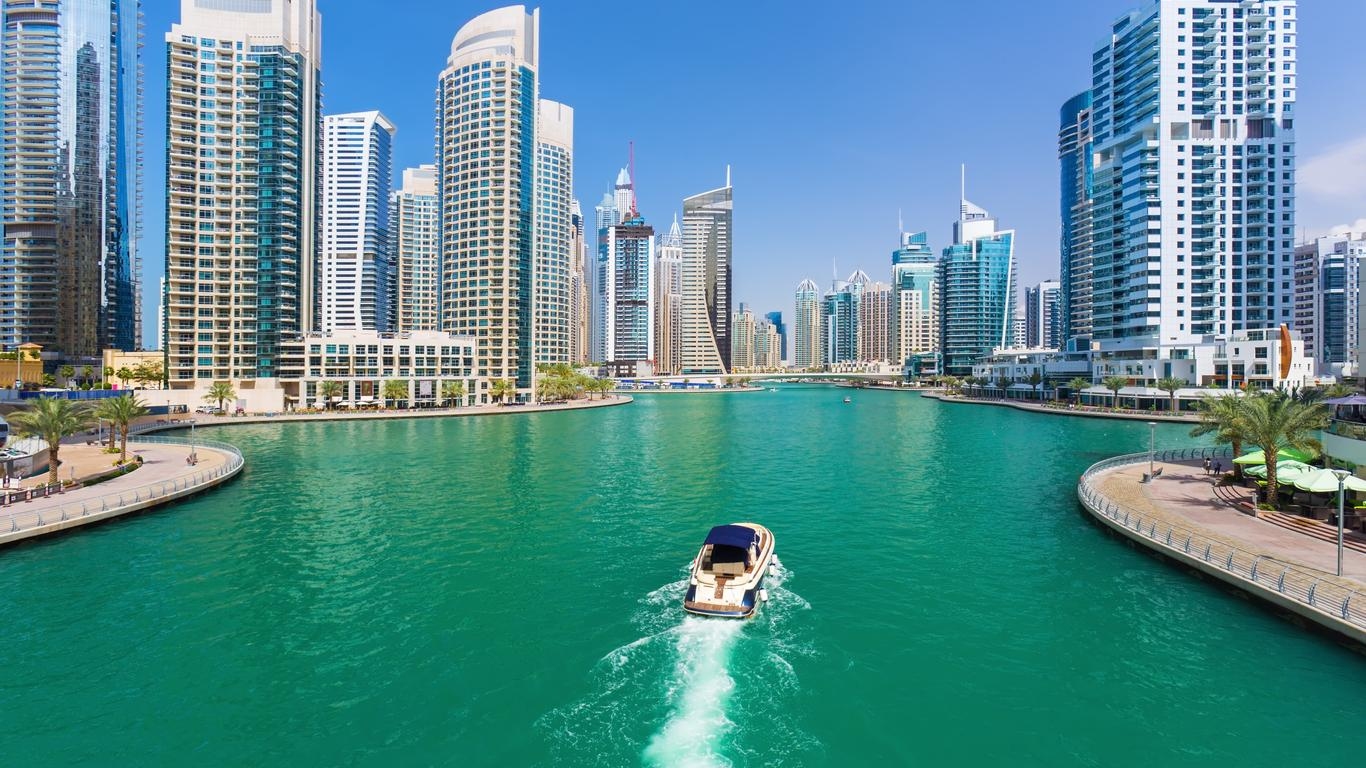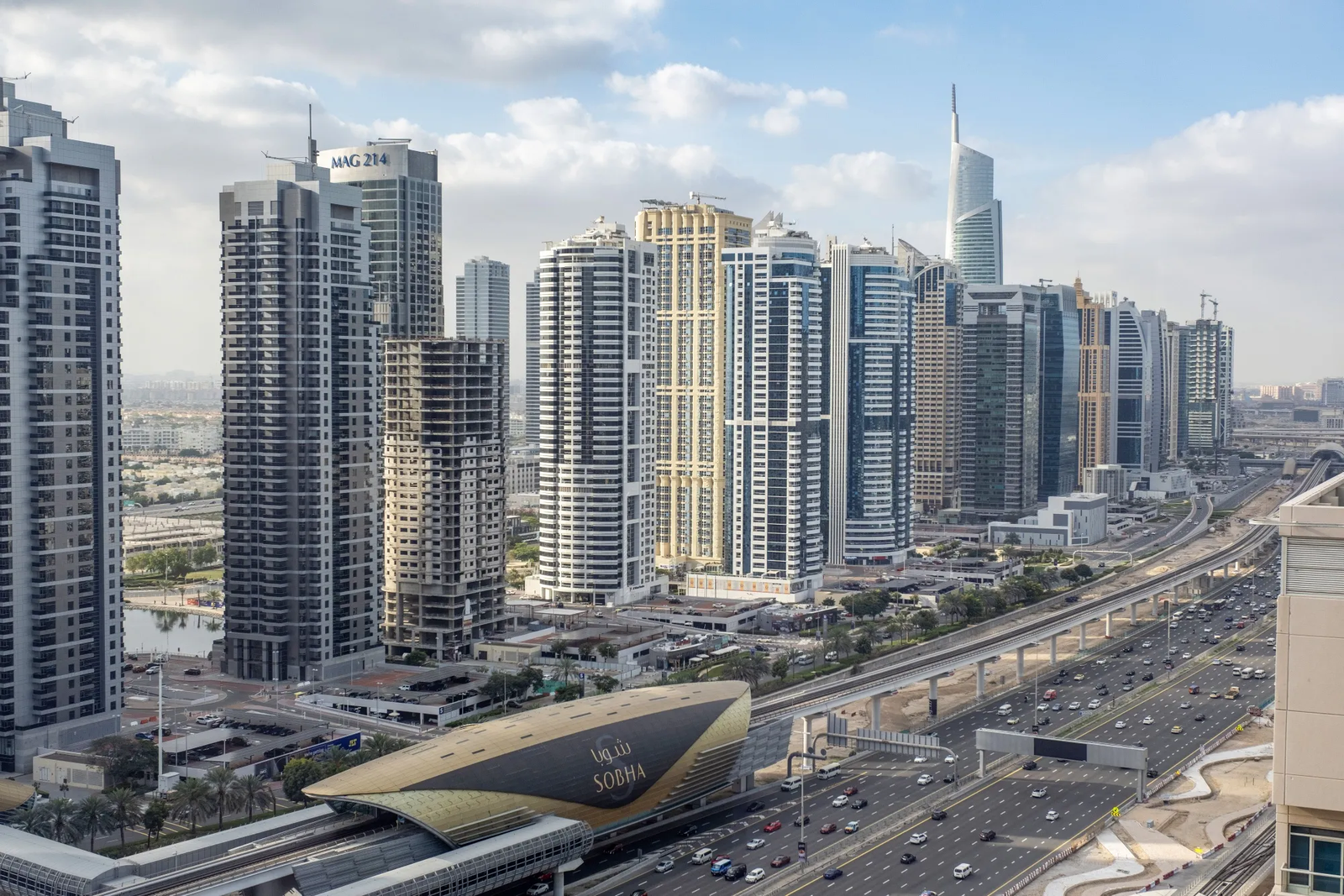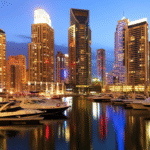Now Reading: Dubai Real Estate: 6 Smart Moves Amid Evolving Tax Rules
-
01
Dubai Real Estate: 6 Smart Moves Amid Evolving Tax Rules
Dubai Real Estate: 6 Smart Moves Amid Evolving Tax Rules

Table of Contents
Dubai’s real estate market continues to attract U.S. investors with its tax-free environment for individuals, offering no personal income tax, capital gains tax, or annual property taxes, enabling 100% retention of rental income and resale profits. This contrasts with U.S. markets, where taxes can reduce returns by 15-30%.
The UAE dirham’s peg to the U.S. dollar eliminates currency risk, and the Golden Visa, granting 10-year residency for investments of AED 2 million ($545,000), enhances appeal. In 2025, Dubai’s market is thriving, with Q1 transactions reaching AED 110 billion and a 19.9% price increase, per Dubai Land Department data.
Evolving tax rules, including stricter VAT compliance and the 15% Domestic Minimum Top-Up Tax (DMTT), require strategic planning. This article outlines six smart moves for U.S. investors to maximize returns in Dubai’s real estate market amid these changes in 2025.
1. Focus on Residential Properties for VAT Efficiency
Under Federal Decree-Law No. 8 of 2017, first sales of residential properties within three years of completion are zero-rated for VAT, and long-term leases (over six months) are VAT-exempt. In 2025, stricter Federal Tax Authority (FTA) rules mandate developers to submit completion certificates within 30 days, ensuring projects like Emaar’s Creek Crescent in Dubai Creek Harbour (AED 1.3 million, $354,000, 6-7% yields) avoid 5% VAT charges. Unlike commercial properties, residential investments in zones like Dubai Marina or JVC minimize compliance costs. U.S. investors should verify developer VAT compliance to secure tax-free rental income ($70,000 annually for a $1 million property).
2. Secure Off-Plan Investments with Escrow Protection
RERA’s 2025 Oqood system enhancements require 100% of off-plan buyer payments to be held in Dubai Land Department-regulated escrow accounts until project milestones are met, with fines up to AED 500,000 ($136,000) for delays beyond the 180-day construction start rule. Off-plan projects like Azizi Riviera in MBR City (AED 600,000, $163,000, 7-8.5% yields) offer 7-10% appreciation and zero-rated VAT. Confirm escrow compliance to protect funds and avoid legal disputes, preserving tax-free capital gains.
3. Leverage Golden Visa for Long-Term Savings
The Golden Visa threshold for off-plan properties in zones like Dubai South and Business Bay drops to AED 1.5 million ($408,000) in 2025, per UAE Government updates. This 10-year residency reduces travel and management costs for investments like Emaar South’s Urbana (AED 1.2 million, $326,000, 7-8.5% yields), generating $105,000 tax-free annually for a $1.5 million property. U.S. investors must report rental income on IRS Schedule E and assets over $50,000 (single filers) via Form 8938, avoiding penalties up to $100,000. The tax-free environment enhances ROI compared to U.S. markets.
4. Use Free Zone Companies for High-Value Portfolios
For high-net-worth U.S. investors, free zone companies in DMCC or Jebel Ali offer 0% corporate tax on qualifying income (below AED 5 million or non-mainland sources), per Federal Decree-Law No. 47 of 2023. The 15% DMTT, effective January 1, 2025, only affects multinationals with revenues over €750 million ($800 million). A DMCC company owning a $2 million villa in Palm Jumeirah yielding 6.5% avoids UAE corporate tax, retaining $130,000 annually. Setup costs start at AED 20,000 ($5,400). File IRS Form 5471 for Controlled Foreign Corporation compliance.
5. Optimize U.S. Tax Deductions
Dubai’s tax-free status delivers superior returns compared to U.S. cities like New York (2-4% yields). A $1 million property yielding 7% generates $70,000 tax-free annually, versus $50,000-$60,000 after U.S. taxes. U.S. investors must report rental income on Schedule E, deducting expenses like depreciation ($36,364 annually for a $1 million property), maintenance, and management fees. Foreign assets over $50,000 (single filers) or $100,000 (joint filers) require Form 8938, and accounts over $10,000 need an FBAR.
6. Invest in High-Rated Properties for Market Advantage
Dubai’s 2025 1-to-5-star property rating system, evaluating over 60 elements like location and sustainability, boosts demand for high-rated residential buildings in zones like Downtown Dubai and Dubai Creek Harbour, per Arabian Business. High-rated projects like Emaar’s Burj Al Arab Views (AED 1.5 million, $408,000, 6-7.2% yields) offer stronger rental yields and 6-8% appreciation due to transparency. Zero-rated VAT and no taxes enhance returns, but lower-rated properties may face reduced demand. U.S. investors should prioritize high-rated projects and report income on Schedule E.
U.S. Tax Compliance Considerations
Dubai’s tax-free market outpaces global hubs like London (3-5% yields) or Singapore (3-5%). U.S. investors must report rental income and assets, using deductions to minimize tax liability. Non-compliance with FATCA (Form 8938) or FBAR risks severe penalties. Corporate buyers must file Form 5471. The 4% DLD transfer fee, now paid upfront per 2025 rules, isn’t creditable against U.S. taxes. A tax professional ensures compliance and maximizes deductions.
Risks and Mitigation Strategies
Dubai’s market is robust, with AED 761 billion in 2024 transactions and a projected 5-9% price increase in 2025. Risks include off-plan delays, oversupply in JVC, and global economic volatility like oil price fluctuations. Mitigate by selecting developers like Emaar or Azizi, verifying escrow and VAT compliance with DLD, and diversifying across zones like Downtown Dubai and Palm Jumeirah.
Why Dubai in 2025?
Dubai’s Economic Agenda D33, targeting a doubled economy by 2033, and 25 million projected tourists in 2025 drive demand. Yields of 6-10%, zero personal taxes, and Golden Visa benefits make Dubai a top investment destination. These six smart moves focusing on residential properties, securing off-plan investments, leveraging Golden Visa, using free zone companies, optimizing U.S. deductions, and investing in high-rated properties enable U.S. investors to navigate evolving tax rules for maximum returns.
In conclusion, Dubai’s evolving tax regulations enhance transparency while preserving its tax-free appeal. By implementing these smart moves, partnering with reputable developers, and ensuring IRS compliance, U.S. investors can capitalize on one of the world’s most dynamic real estate markets in 2025. Dubai
read more: Dubai Investment Zones: 6 Real Estate Hubs With Tax-Free Perks






















